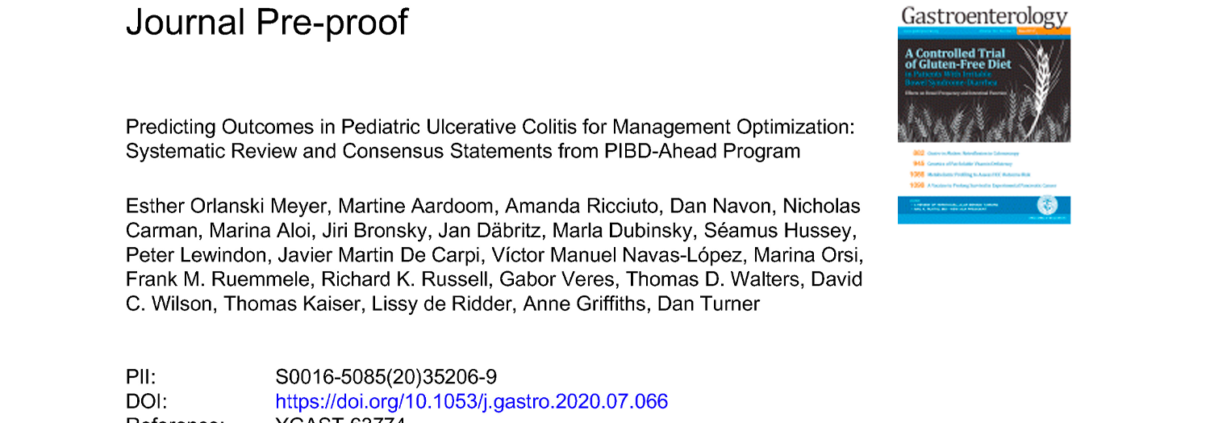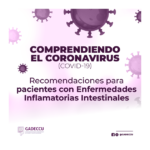Predicting Outcomes in Pediatric Ulcerative Colitis for Management Optimization:
Systematic Review and Consensus Statements from PIBD-Ahead Program
Esther Orlanski Meyer, Martine Aardoom, Amanda Ricciuto, Dan Navon, Nicholas Carman, Marina Aloi, Jiri Bronsky, Jan Däbritz, Marla Dubinsky, Séamus Hussey, Peter Lewindon, Javier Martin De Carpi, Víctor Manuel Navas-López, Marina Orsi, Frank M. Ruemmele, Richard K. Russell, Gabor Veres, Thomas D. Walters, David C. Wilson, Thomas Kaiser, Lissy de Ridder, Anne Griffiths, Dan Turner
Background and aims
A better understanding of prognostic factors in ulcerative colitis (UC) could improve patient management and reduce complications. We aimed to identify evidence-based predictors for outcomes in pediatric UC, which may be used to optimize treatment algorithms.
Methods
Potential outcomes worthy of prediction in UC were determined by surveying 202 experts in pediatric UC. A systematic review of the literature, with selected meta-analysis, was performed to identify studies that investigated predictors for these outcomes. Multiple national and international meetings were held to reach consensus on evidence-based statements.
Results
Consensus was reached on 31 statements regarding predictors of colectomy, acute severe colitis (ASC), chronically active pediatric UC, and cancer or mortality. At diagnosis, disease extent (six studies, n=627; P=.035), Pediatric Ulcerative Colitis Activity Index (PUCAI) score (four studies, n=318; P<.001), hemoglobin, hematocrit, and albumin may predict colectomy. In addition, family history of UC (two studies, n=557; P=.0004), extraintestinal manifestations (four studies, n=526; P=.048), and disease extension over time may predict colectomy, while primary sclerosingcholangitis (PSC) may be protective. ASC may be predicted by disease severity at onset and hypoalbuminemia. Higher PUCAI score and C-reactive protein on day 3 and 5 of hospital admission predict failure of intravenous steroids. Risk factors for malignancy included concomitant diagnosis of PSC, longstanding colitis (>10 years), male sex, younger age at diagnosis, and thiopurine use.
Conclusions
These evidence-based consensus statements offer predictions to be considered for a personalized medicine approach in treating pediatric UC.
Systematic Review and Consensus Statements from PIBD-Ahead Program



